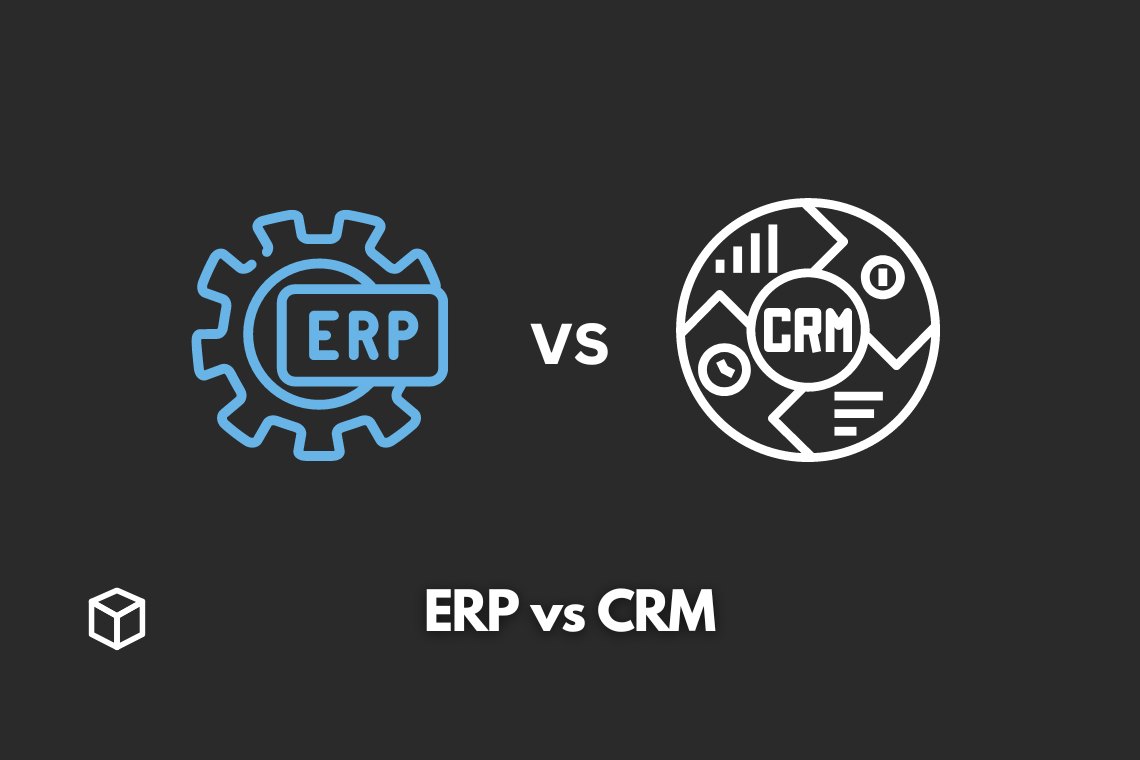ERP and CRM systems are two of the most important tools that businesses of all sizes use to manage and grow their operations.
But what are these systems, and what are the main differences between them?
In this article, we’ll explore the key components, benefits, and differences between ERP and CRM systems, as well as the benefits and challenges of integrating them.
Introduction
ERP, or enterprise resource planning, is a type of software that helps businesses manage and automate their core processes, such as financial management, inventory management, and supply chain management.
CRM, or customer relationship management, is a type of software that helps businesses manage their interactions with customers and prospects, including customer data management, sales management, and marketing automation.
While both ERP and CRM systems are essential for businesses, they are designed to serve different purposes.
ERP systems focus on managing and automating internal business processes, while CRM systems focus on managing and improving customer relationships.
ERP Systems
ERP systems are designed to help businesses manage and automate their core processes, such as financial management, inventory management, and supply chain management.
They provide a centralized database that can be accessed by different departments and users, and they automate many of the manual processes that are required to manage these processes.
Some of the key components of ERP systems include:
- Financial management: This includes modules for accounting, budgeting, and financial reporting.
- Inventory management: This includes modules for tracking inventory levels, managing purchase orders, and monitoring stock movements.
- Supply chain management: This includes modules for managing suppliers, tracking deliveries, and monitoring production schedules.
There are many benefits to using ERP systems, including:
- Improved efficiency: By automating many of the manual processes required to manage core business processes, ERP systems can help businesses save time and reduce errors.
- Cost savings: By centralizing data and automating many processes, ERP systems can help businesses reduce costs associated with managing their core processes.
- Better decision-making: By providing real-time data and reporting, ERP systems can help businesses make more informed decisions.
Some real-world examples of companies that have implemented ERP systems include:
- Dell
- Coca-Cola
- HP
CRM Systems
CRM systems are designed to help businesses manage their interactions with customers and prospects, including customer data management, sales management, and marketing automation.
They provide a centralized database that can be accessed by different departments and users, and they automate many of the manual processes that are required to manage these interactions.
Some of the key components of CRM systems include:
- Customer data management: This includes modules for storing and managing customer data, such as contact information, purchase history, and marketing preferences.
- Sales management: This includes modules for managing leads, tracking sales, and monitoring sales performance.
- Marketing automation: This includes modules for creating and managing marketing campaigns, tracking the results of those campaigns, and analyzing customer data to identify new opportunities.
There are many benefits to using CRM systems, including:
- Improved customer relationships: By providing a centralized database of customer data, CRM systems can help businesses better understand and respond to their customers’ needs.
- Increased sales: By automating many of the manual processes associated with sales management, CRM systems can help businesses increase sales and improve sales performance.
- Better marketing: By providing tools for creating and managing marketing campaigns, CRM systems can help businesses target the right customers at the right time and track the results of their campaigns.
Some real-world examples of companies that have implemented CRM systems include:
- Salesforce
- Hubspot
- Zoho CRM
ERP vs CRM: Key Differences
While both ERP and CRM systems are essential for businesses, they are designed to serve different purposes.
The main differences between ERP and CRM systems include:
- Types of data: ERP systems focus on managing internal business processes, such as financial management and inventory management, while CRM systems focus on managing customer relationships, including customer data and sales management.
- Business processes: ERP systems are designed to automate internal business processes, while CRM systems are designed to automate customer-facing processes, such as sales and marketing.
- Users: ERP systems are typically used by different departments within a business, such as finance, operations, and supply chain management, while CRM systems are typically used by sales and marketing teams.
When choosing between ERP and CRM systems for a specific business, it is important to consider the specific needs of the business and the different types of data and processes that need to be managed.
Integration of ERP and CRM
While ERP and CRM systems are designed to serve different purposes, they can also be integrated to provide even more benefits for businesses.
Some of the benefits of integrating ERP and CRM systems include:
- A complete view of the customer: By integrating customer data from the CRM system with financial and operational data from the ERP system, businesses can gain a complete view of the customer and make more informed decisions.
- Improved sales and marketing: By integrating sales and marketing data from the CRM system with financial and operational data from the ERP system, businesses can better target and track the results of their sales and marketing campaigns.
- Increased efficiency: By automating the flow of data between ERP and CRM systems, businesses can save time and reduce errors associated with manual data entry.
However, integrating ERP and CRM systems can also present some challenges, such as:
- Data quality: Ensuring that data is accurate and consistent across both systems can be challenging.
- Data security: Protecting sensitive data across both systems can be challenging.
- Integration cost: Integrating ERP and CRM systems can be costly and time-consuming.
To overcome these challenges, businesses should work with experienced ERP and CRM consultants who can help plan and implement the integration in a way that minimizes risks and maximizes benefits.
Conclusion
ERP and CRM systems are essential tools for businesses of all sizes, but they serve different purposes.
ERP systems focus on managing internal business processes, while CRM systems focus on managing customer relationships.
While these systems can be used separately, integrating them can provide even more benefits for businesses.
To ensure a successful integration, businesses should work with experienced ERP and CRM consultants who can help plan and implement the integration in a way that minimizes risks and maximizes benefits.




